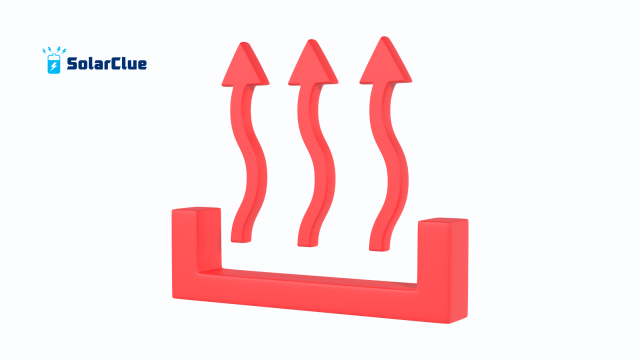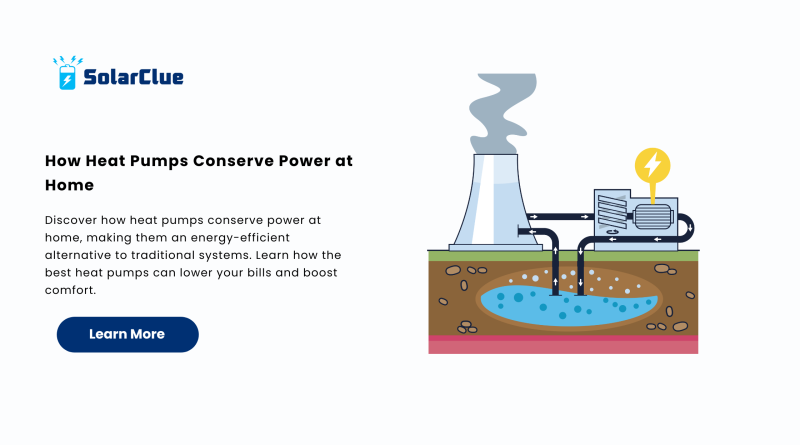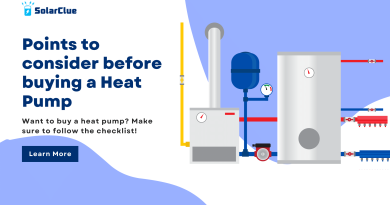How Heat Pumps Conserve Power at Home
In today’s energy-conscious world, homeowners are constantly seeking smarter and more sustainable ways to power their homes. One solution that has been gaining popularity in recent years is the heat pump. Known for its energy efficiency and ability to provide both heating and cooling, a heat pump is not just a luxury—it’s a powerful tool to conserve power at home. In this blog, we’ll explore how heat pumps work, why they are a game-changer for home energy savings, and how choosing the best heat pumps can transform your comfort and cost savings.
Table of Contents
What Is a Heat Pump?
A heat pump is an advanced device that transfers heat from one place to another, rather than generating it. In simple terms, during winter, it pulls heat from the outside air and brings it indoors to warm your home. In the summer, it reverses the process and removes heat from your home, acting like an air conditioner.
This dual functionality is what makes heat pumps for home use incredibly efficient. Instead of investing in separate systems for heating and cooling, a heat pump provides a year-round solution—making it cost-effective and eco-friendly.
How Do Heat Pumps Save Power?
The secret behind the power-saving capability of heat pumps lies in their operation. Unlike conventional heating systems that rely on burning fuel or consuming electricity to create heat, heat pumps simply move existing heat using electricity. Here’s how that helps conserve power:
1. Energy Efficiency (COP Rating)
Heat pumps are rated by their Coefficient of Performance (COP). A COP of 3, for example, means the pump delivers 3 units of heat for every 1 unit of electricity used. This makes them up to 300% efficient—far more than traditional heaters or coolers.
2. Reduced Electricity Consumption
Because heat pumps for home use electricity to move heat instead of generating it, they require significantly less power to maintain comfortable indoor temperatures, leading to lower utility bills.
3. Smart Inverter Technology
Many of the best heat pumps now include smart inverter technology that adjusts the compressor speed based on the room’s temperature. This reduces the frequent on/off cycles and maintains efficiency.
4. Integration with Solar Power
Heat pumps pair exceptionally well with solar power systems. If your home is equipped with solar panels, you can run your heat pump almost entirely on renewable energy, reducing your dependency on the grid and slashing your electricity bills even further.
Types of Heat Pumps Suitable for Home Use
To make the most of energy savings, it’s crucial to choose the right type of heat pump for your home. Here are the most common types:
1. Air-Source Heat Pumps
These are the most popular and cost-effective. They extract heat from the outside air—even in cold weather—and transfer it inside.
2. Ground-Source (Geothermal) Heat Pumps
These extract heat from the ground and are more efficient but come with higher installation costs. They’re ideal for long-term savings.
3. Hybrid Heat Pumps
A combination of a heat pump and a traditional furnace. They automatically switch to the most efficient option based on the temperature, maximizing energy conservation.
Choosing the Best Heat Pumps for Your Home
When selecting a heat pump, here are the factors to consider:
1. Efficiency Ratings
Look for high SEER (Seasonal Energy Efficiency Ratio) and HSPF (Heating Seasonal Performance Factor) ratings. The best heat pumps usually have higher ratings and can significantly cut down energy use.
2. Size & Capacity
Oversized or undersized units can waste energy. Work with a professional to assess your home’s heating and cooling needs.
3. Smart Features
Choose a model that comes with programmable thermostats and Wi-Fi compatibility. These features let you manage your system efficiently, even when you’re not home.
4. Noise Levels
Modern heat pumps for home use are designed to operate quietly. Make sure to check decibel ratings before purchase.
Benefits of Using Heat Pumps at Home

Beyond conserving power, heat pumps offer a range of benefits that make them a wise investment:
-
Lower Utility Bills: Reduced power consumption leads to lower monthly electricity bills.
-
Environmentally Friendly: Using less electricity reduces carbon emissions.
-
All-Season Comfort: Heating in winter and cooling in summer with a single device.
-
Low Maintenance: Requires minimal upkeep compared to traditional systems.
-
Long Lifespan: High-quality heat pumps can last 15-20 years with proper care.
Heat Pumps vs Traditional Heating Systems
| Feature | Heat Pump | Traditional Heater |
|---|---|---|
| Energy Efficiency | Up to 300% | Around 90% |
| Dual Function (Heat/Cool) | Yes | No |
| Operating Cost | Low | High |
| Carbon Footprint | Low | High |
| Lifespan | 15–20 years | 10–15 years |
Tips to Maximize Power Conservation with Heat Pumps
-
Regular Maintenance: Clean filters and check refrigerant levels to ensure optimal performance.
-
Proper Insulation: Make sure your home is well-insulated so the heat pump doesn’t overwork.
-
Smart Thermostats: Use programmable settings to reduce unnecessary energy usage.
-
Use in Moderate Climates: They work best in regions that don’t experience extreme cold.
FAQs About Heat Pumps
1. Are heat pumps effective in cold climates?
Yes, modern air-source heat pumps can operate efficiently even in temperatures as low as -15°C, though ground-source systems are better for extreme conditions.
2. How much can I save with a heat pump?
On average, homeowners can reduce their electricity consumption for heating and cooling by 30–60%, depending on usage and local electricity rates.
3. Do heat pumps require a lot of maintenance?
No. Heat pumps require minimal maintenance—mostly filter cleaning, coil inspection, and an annual service check.
4. Can I install a heat pump in an old house?
Yes, but you might need to upgrade your insulation and ducts for optimal efficiency.
5. Are heat pumps eco-friendly?
Absolutely. Since they use less power and can be powered by renewable energy, they are one of the most environmentally friendly HVAC options available.
By choosing the best heat pumps and optimizing how they are used, homeowners can significantly cut down on electricity usage while enjoying reliable, all-year comfort. If you’re looking to make your home more energy-efficient and future-ready, heat pumps for home use are a smart, sustainable investment.
Want to explore how to conserve more energy at home with modern solar and heating solutions? Dive into more tips and products at solarclue.com and get inspired by in-depth energy insights at blog.solarclue.com.




